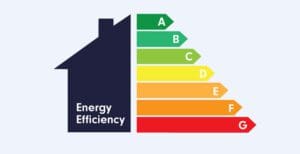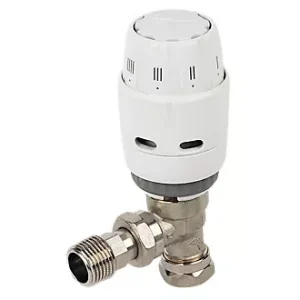Enhancing Gas Boiler Efficiency And How UK Homeowners Can Save Money
In the United Kingdom, where winters can be unforgiving, gas boilers play a vital role in keeping homes warm and comfortable. However, with rising energy costs and environmental concerns, maximising gas boiler efficiency has become increasingly important.
Not everyone can afford to replace their old inefficient boiler, so are there ways to reduce energy consumption? Absolutely, From bleeding your radiators to lagging your pipes, you can make a difference by taking these simple steps to help improve your boiler efficiency.
Fortunately, there are numerous strategies that UK homeowners can implement to enhance the efficiency of their gas boilers while reducing energy consumption and minimising carbon emissions. In this comprehensive guide, we will explore practical tips and techniques to help you achieve optimal gas boiler efficiency in the UK.
Understanding Gas Boiler Efficiency in the UK:
Gas boiler efficiency in the UK is typically measured by the Seasonal Efficiency of Domestic Boilers in the UK (SEDBUK) rating or the ErP (Energy-related Products) directive. Both ratings provide valuable insights into the performance of gas boilers and help consumers make informed decisions when purchasing or upgrading their heating systems.
How Efficient Is My Old Boiler
This very much depends on the year that your boiler was manufactured. Looking at the chart above you can see energy ratings from A to G. Older boilers will have an efficiency rating between E and G which would be under 70% efficient. Compare this to a newer condensing boiler which has upwards of 93% efficiency, it is clear to see where the energy savings comes into play.
If your old boiler is costing you a lot on your annual gas bills, it might well be worth investing in a new boiler. You could save up to 30% on your annual gas bills by doing this. If you cannot afford to replace the boiler there are other options to reduce energy costs such as turning the TRV’s down lower or turning the room thermostat down 1 or 2 degrees. For every 1c you could save around 10% on energy costs.
Thermostatic Radiator Valves:
Another way of reducing your energy bills and improving your boiler efficiency would be to install thermostatic radiator valves in your heating system if the radiators do not have any. Some of the older heating systems never came with TRV’s. fitted to radiators.
Thermostatic radiator valves (TRVs) significantly enhance heating efficiency by granting precise control over room temperatures. By adjusting the flow of hot water to individual radiators based on set temperature levels, TRVs prevent overheating and maintain optimal comfort levels.
This targeted approach reduces energy wastage by only heating occupied spaces, rather than the entire home. Additionally, TRVs allow users to customise heating schedules according to specific needs, optimising energy usage and reducing utility costs.
Overall, the implementation of thermostatic radiator valves improves heating efficiency by promoting energy conservation, reducing heat loss, and providing greater control over indoor comfort.
Insulate Your Pipes
Pipe insulation in the UK offers significant energy efficiency benefits by minimising heat loss and reducing energy consumption in heating systems. In cold climates like the UK, uninsulated pipes can lose a substantial amount of heat as hot water travels from the boiler to various parts of the home.
By insulating pipes with materials such as foam, fiberglass, or polyethylene, heat loss is dramatically reduced, ensuring that hot water remains hot throughout its journey. This not only improves the efficiency of the heating system but also reduces the workload on the boiler, leading to lower energy bills and increased longevity of the equipment.
Additionally, pipe insulation helps prevent condensation and freezing, reducing the risk of damage to pipes and enhancing overall system reliability. Overall, investing in pipe insulation in the UK is a cost-effective way to improve energy efficiency, reduce carbon emissions, and enhance home comfort.
Schedule Regular Boiler Servicing
Boiler servicing in the UK is indispensable for maintaining optimal efficiency and prolonging the lifespan of heating systems. Regular servicing by a Gas Safe registered engineer ensures that boilers operate at peak performance levels, minimising energy wastage and maximizing efficiency.
During a service, a Gas safe registered engineer thoroughly inspect and clean boiler components, including burners, heat exchangers, removing any build-up of dirt, debris, or corrosion that can impede efficiency. They also check for leaks, adjust settings, and test safety mechanisms to ensure safe and reliable operation.
By addressing minor issues before they escalate, a boiler service prevents costly breakdowns and extends the lifespan of equipment, ultimately saving homeowners money on boiler repairs and replacements.
Moreover, regular servicing helps boilers operate more efficiently, reducing energy consumption, lowering utility bills, and minimizing carbon emissions, thus contributing to a greener and more sustainable future for the UK.
Upgrade to a High-Efficiency Condensing Boiler
Upgrading to a more efficient gas boiler in the UK is crucial for several reasons. Firstly, it significantly reduces energy consumption, leading to lower utility bills and long-term cost savings for homeowners. With the ever-increasing energy prices, maximising gas boiler efficiency becomes imperative to manage household expenses effectively.
Secondly, upgrading to a high-efficiency boiler contributes to environmental sustainability by reducing carbon emissions associated with energy consumption. As the UK strives to meet its climate targets and transition to a low-carbon economy, every effort to minimise carbon footprint counts.
Lastly, modern, efficient boilers offer improved reliability, performance, and comfort, ensuring a more consistent and comfortable indoor environment for households. Overall, upgrading to a more efficient gas boiler not only benefits homeowners financially but also helps mitigate environmental impact and enhances overall comfort and well-being.
Conclusion:
In the UK, where gas boilers are prevalent in residential heating systems, optimising efficiency is essential for reducing energy consumption, lowering utility bills, and minimising environmental impact.
By implementing the strategies outlined in this guide, including upgrading to high-efficiency condensing boilers, installing thermostatic radiator valves, improving insulation, scheduling regular boiler servicing, and considering renewable heating solutions, homeowners can enhance the efficiency of their gas boilers and enjoy a warmer, more sustainable home environment.
We hope that you got some value from reading this blog post.




